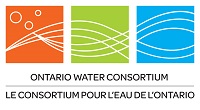Fleming College
Fleming College’s Lindsay campus is home to the Centre for Advancement of Water and Wastewater Technologies (CAWT), a top-notch applied research facility. The CAWT offers a range of services including proof of concept, performance measurement, third party verification, environmental technology verification (ETV), prototyping, technology development, piloting, field demonstration, laboratory analyses, modeling and reverse-engineering. A hub of water expertise, this campus is also home to the School of Environmental and Natural Resource Sciences (SENRS), with a nationally recognized portfolio of over 30 environmental education programs, including programs in Environmental Technology, Resources Drilling, and Advanced Water Systems Operations and Management.
McMaster University
McMaster University has a diverse and multidisciplinary group of researchers working in water-related science, policy, and practice to deliver local and global impacts. All researchers (and research groups) seek to build capacity and advance community engagement through relationships with other institutes, industry, and government. McMaster’s researchers specialize in several water-related areas including: freshwater ecology, flood forecasting, hydrological modelling, climate change impact and adaptation, water and wastewater treatment, water security, stormwater management, water quality (contaminants and effluents), water quality sensors, indigenous water issues, ecohydrology, wildfire mitigation, wetland restoration.
Ontario Tech University
Ontario Tech has a number of researchers studying a variety of areas within ecotoxicology, bioanalytical chemistry and bioinformatics, including a Tier 2 Canada Research Chair in Aquatic Toxicology. Areas of specialization include sensor development, algal biotechnology, and non-lethal sampling methods. Ontario Tech researchers are also interested in the socio-economic and human health impacts of water-related research and development, such as the impact of urbanization and pollution on commercial ventures (eg. fisheries) and vulnerable communities (including Indigenous populations). Ontario Tech collaborates with many public and private sector partners on water-related projects, including Conservation Authorities and government departments.
Queen’s University
Interactions within the domain of Sustainability, Environment and Resources represent Queen’s University’s strengths. Aquatic and terrestrial ecosystems change reflect the unprecedented influence of human activities on landscapes. The interaction between climate change, nutrient pollution/loading, and resource use represent a challenge in Canadian and international watersheds. Queen’s is at the forefront of investigating the impact of these and emerging stressors on freshwater and other ecosystems. Our researchers are internationally known for their discoveries, innovations, and monitoring protocols that guide public policy on issues related to climate change, built infrastructure, water pollution, alternative energy from wastewater and the protection of the Arctic environment.
Ryerson University
Ryerson Urban Water (RUW) is a collective of experts whose mission is to establish a healthy urban water cycle in support of building healthy cities through research, education, and policy. RUW comprises more than 40 members across 6 faculties and 13 departments. Our researchers work on all aspects of water in both natural and built environments, ranging from local work to studies across multiple watersheds. Research includes modeling municipal infrastructure services, urbanizing watersheds, green infrastructure/LID, water/wastewater optimization, microbiology, aquatic organisms, engineered wetlands, oxygen transfer, phosphorus transport and more. We also undertake a number of water related policy and education initiatives.
University of Guelph
Water Resources Engineering has been a specialization at the University of Guelph since the 1970s. Researchers are at the forefront of what we know about engineering sustainable solutions through the application of innovative technologies, while also training and preparing the next generation of highly qualified engineers. Specific areas of focus include urban & rural watershed management, environmental hydraulics, water supply infrastructure, groundwater flow & contaminant transport, water supply security, the remediation of groundwater systems and drainage and irrigation systems. The G360 Institute for Groundwater Research is a multi-disciplinary, field-based academic group that provides world-class training and collaboration in groundwater resource stewardship to advance knowledge, professional practice, and policy.
University of Toronto
University of Toronto has established the Institute for Water Innovation (IWI). It is a multi-disciplinary, multi-departmental network focused on expediting research and development of advanced water technologies by sharing knowledge, ideas, and resources. IWI strives for global leadership in water research by developing breakthrough technologies that address challenges in urban drainage systems and water distribution networks; chemical and microbial characterization of water systems; water and wastewater treatment (including desalination and industrial waters); and remediation and restoration of contaminated waters.
University of Waterloo
The University of Waterloo established the Water Institute in 2009 to provide an on-campus network of excellence in water research, education, and innovation, with a particular focus on promoting interdisciplinarity. Water Institute researchers represent a wide breadth of disciplinary expertise with a membership of over 150 faculty members and 300 graduate students, who collectively span all six Waterloo academic faculties. The Water Institute is ranked among the world’s top water research organizations.
–
Western University
–
Wilfrid Laurier University
Wilfrid Laurier University undertakes a holistic, interdisciplinary and ecosystem approach to the study of both Canadian and global water issues, including the effects of climate change, the sustainability of healthy aquatic and coastal ecosystems, resource management and the development of regulations and policy related to water use. A primary area of institutional strength at Laurier is cold regions water science. Laurier facilities allow for the study of hydrology, aquatic culture and testing, biogeochemistry characterization, molecular biochemistry and imaging, and predictive modelling.

